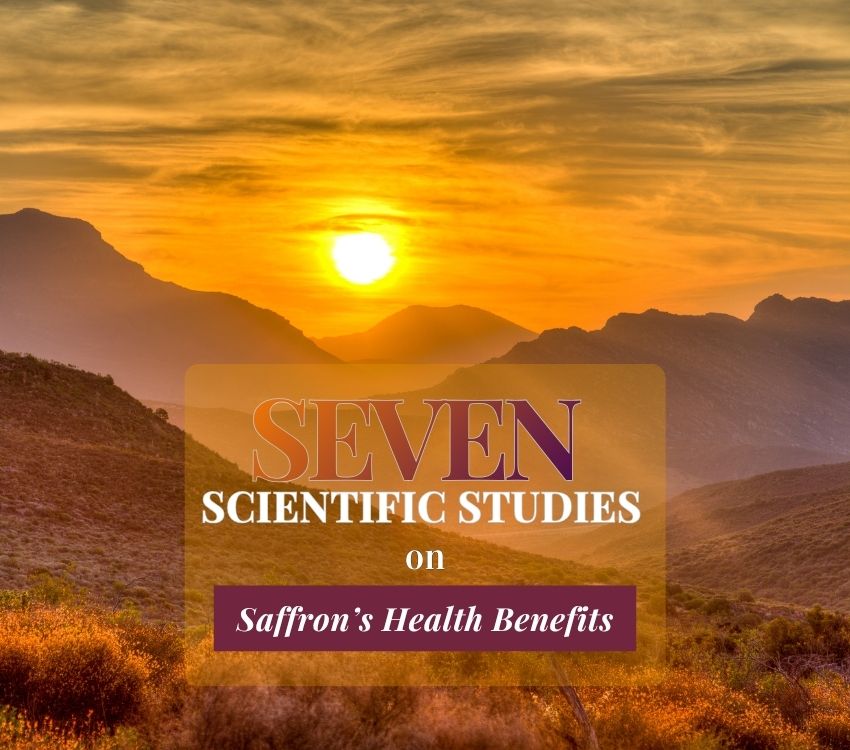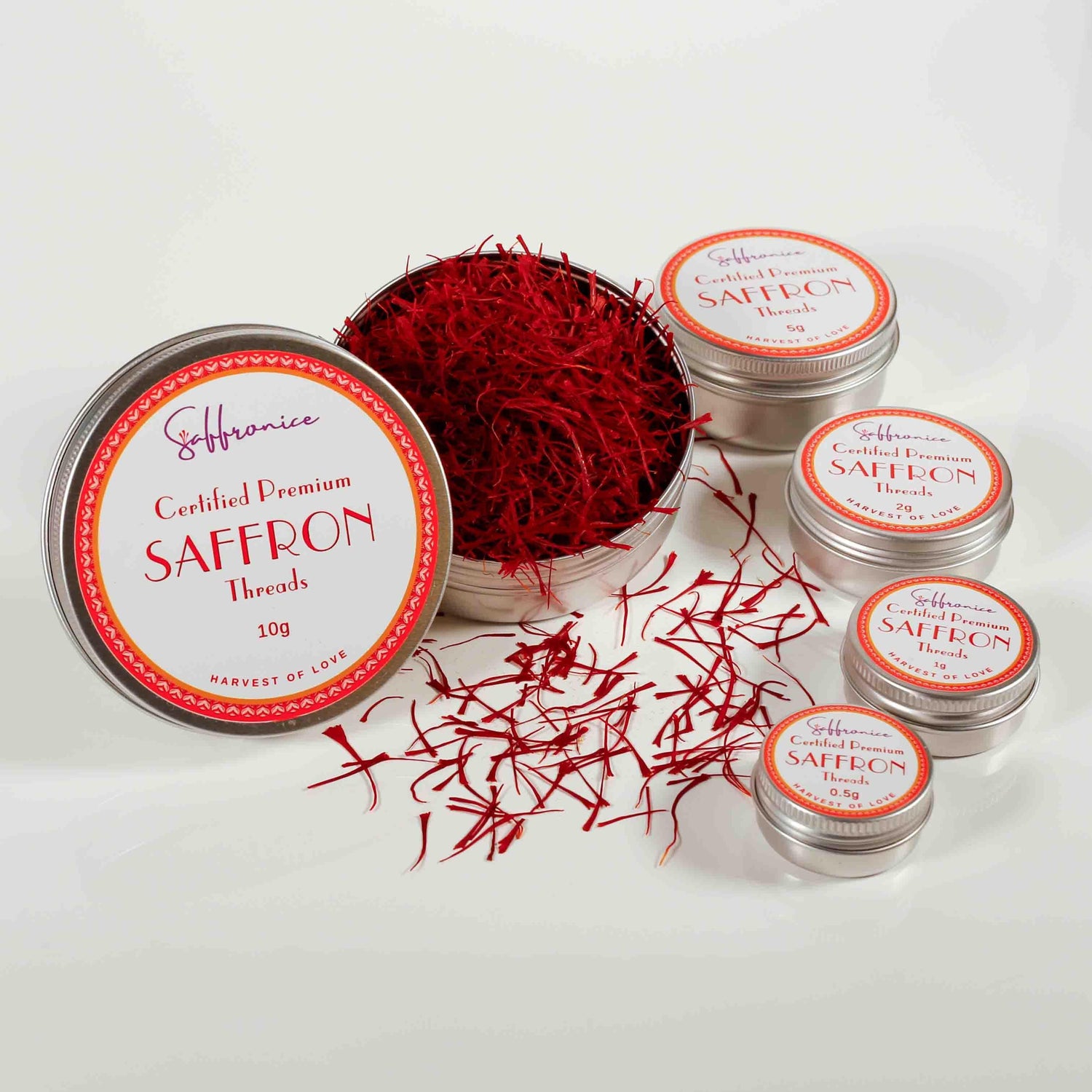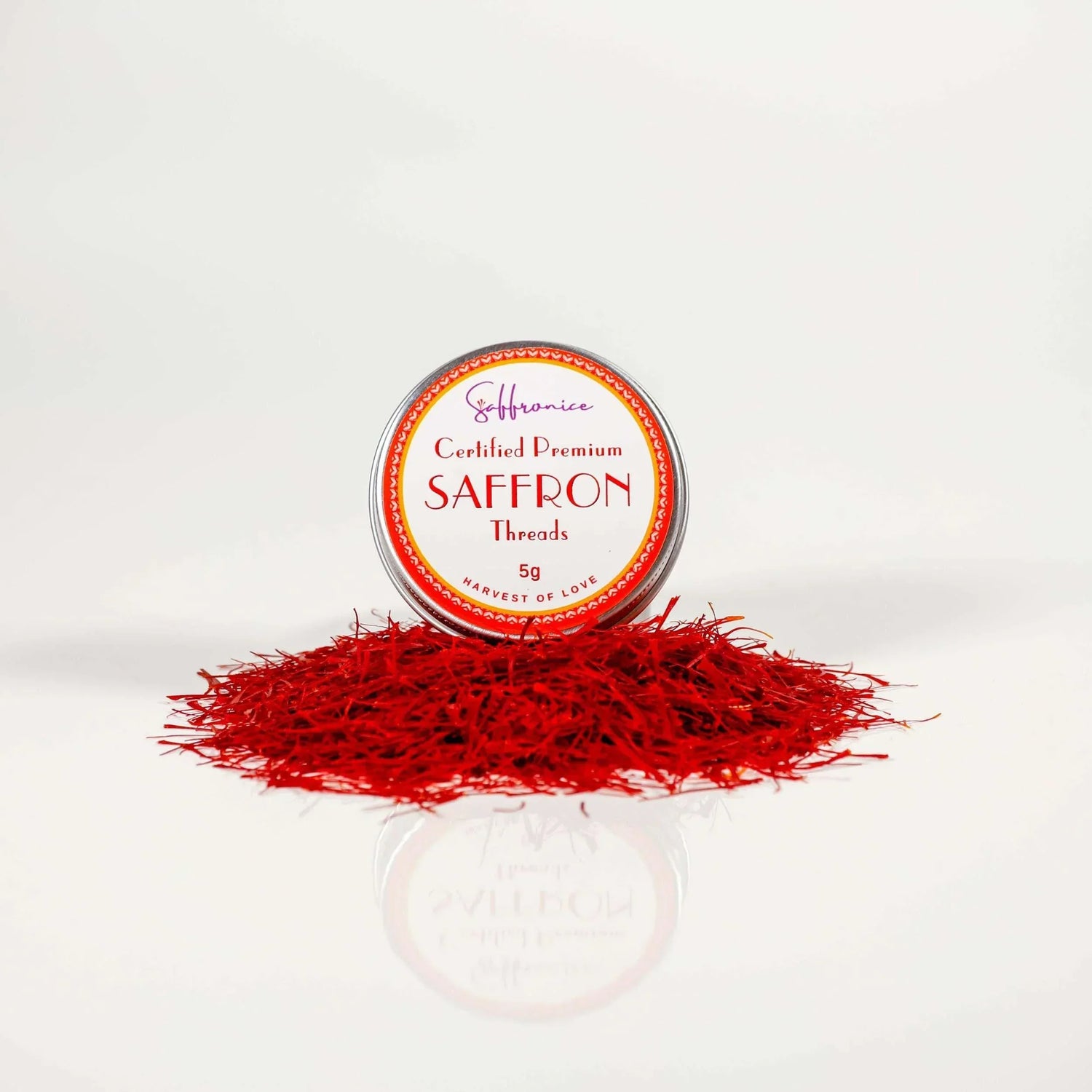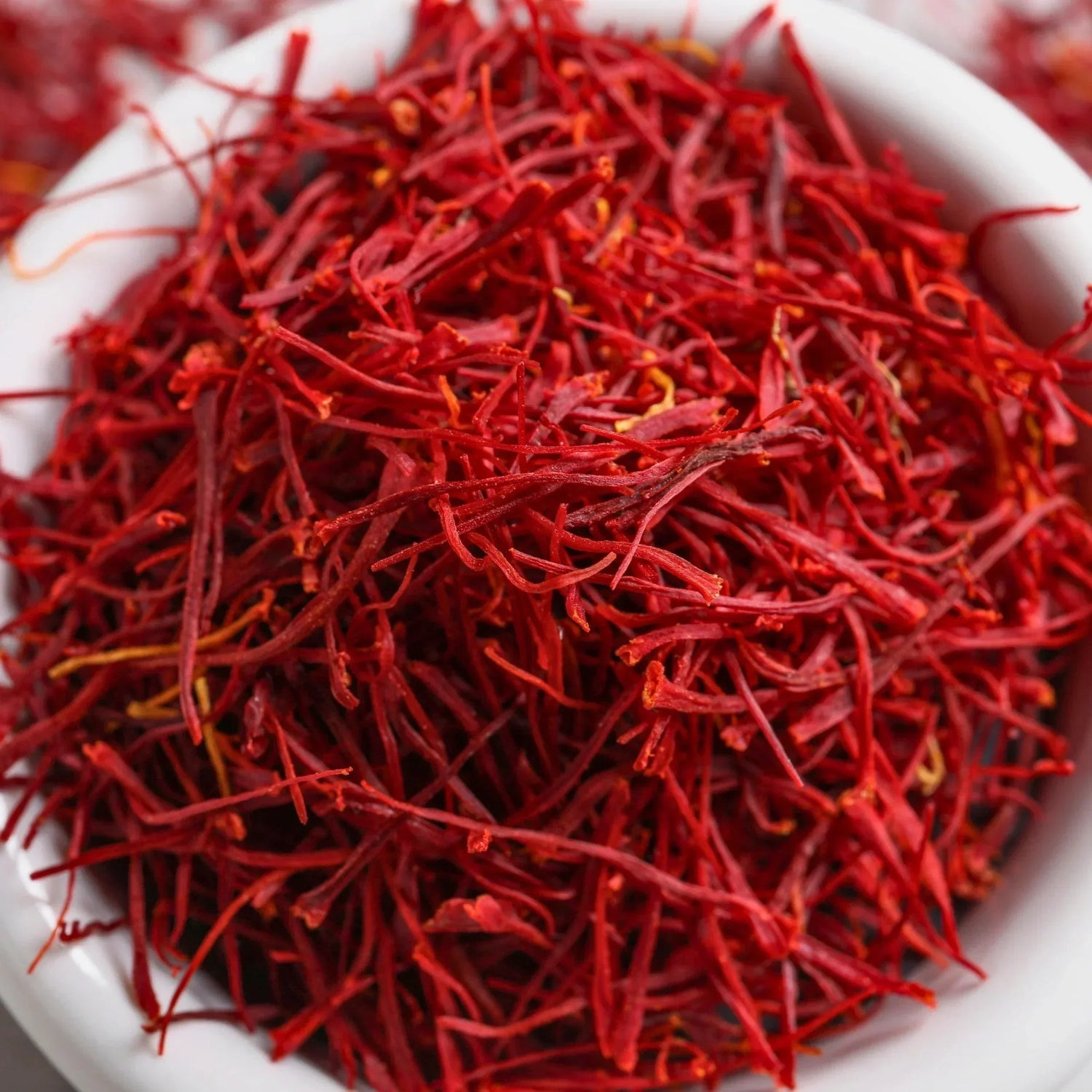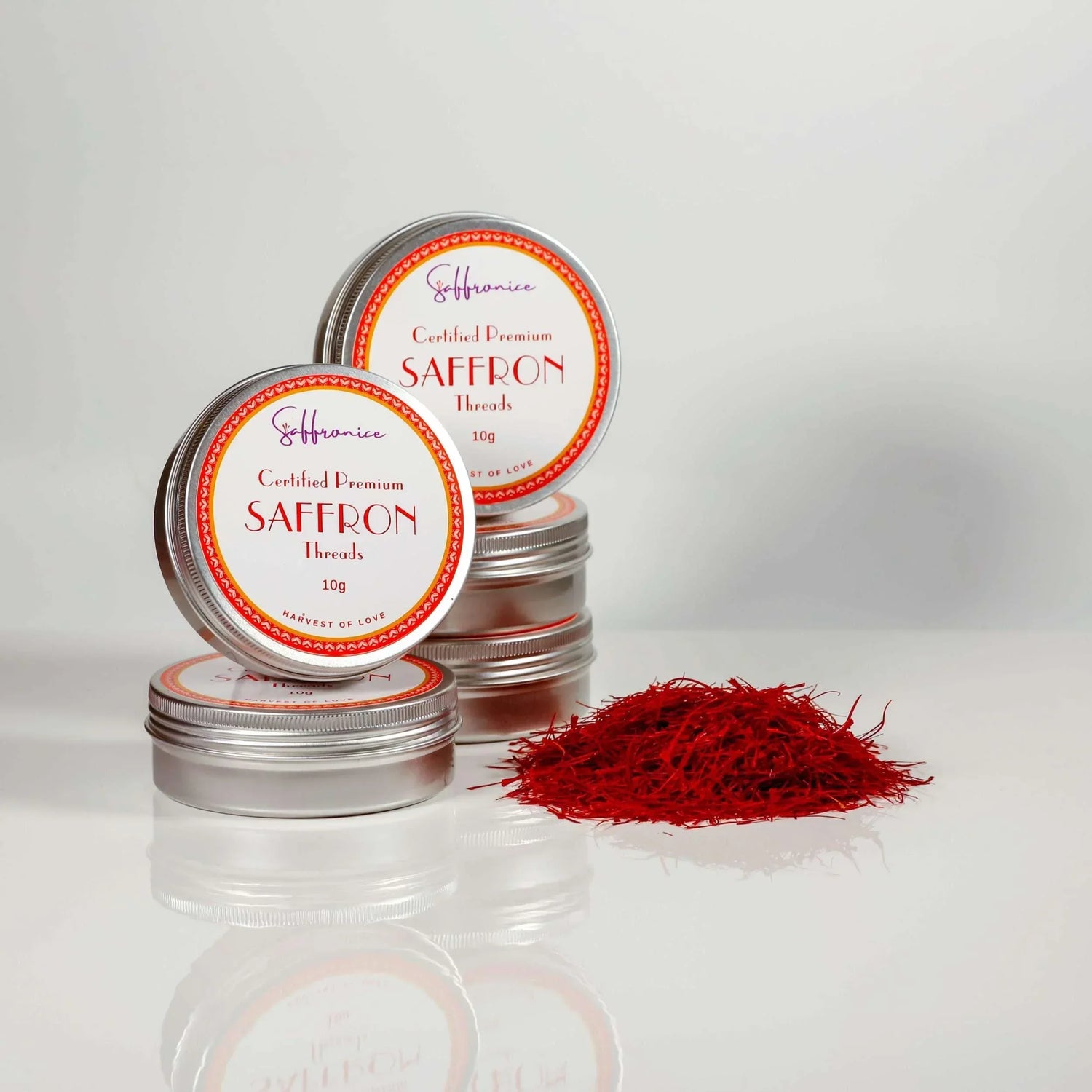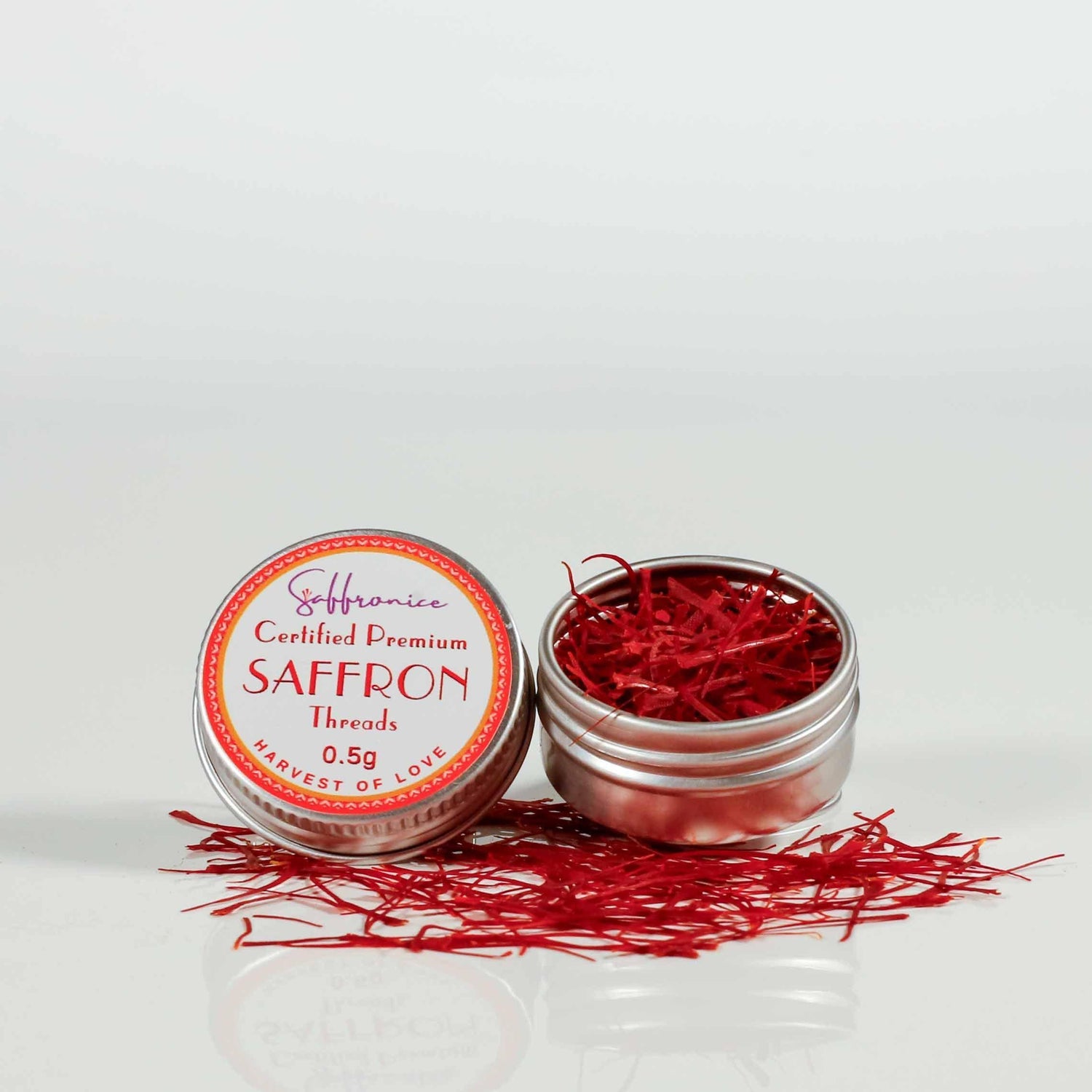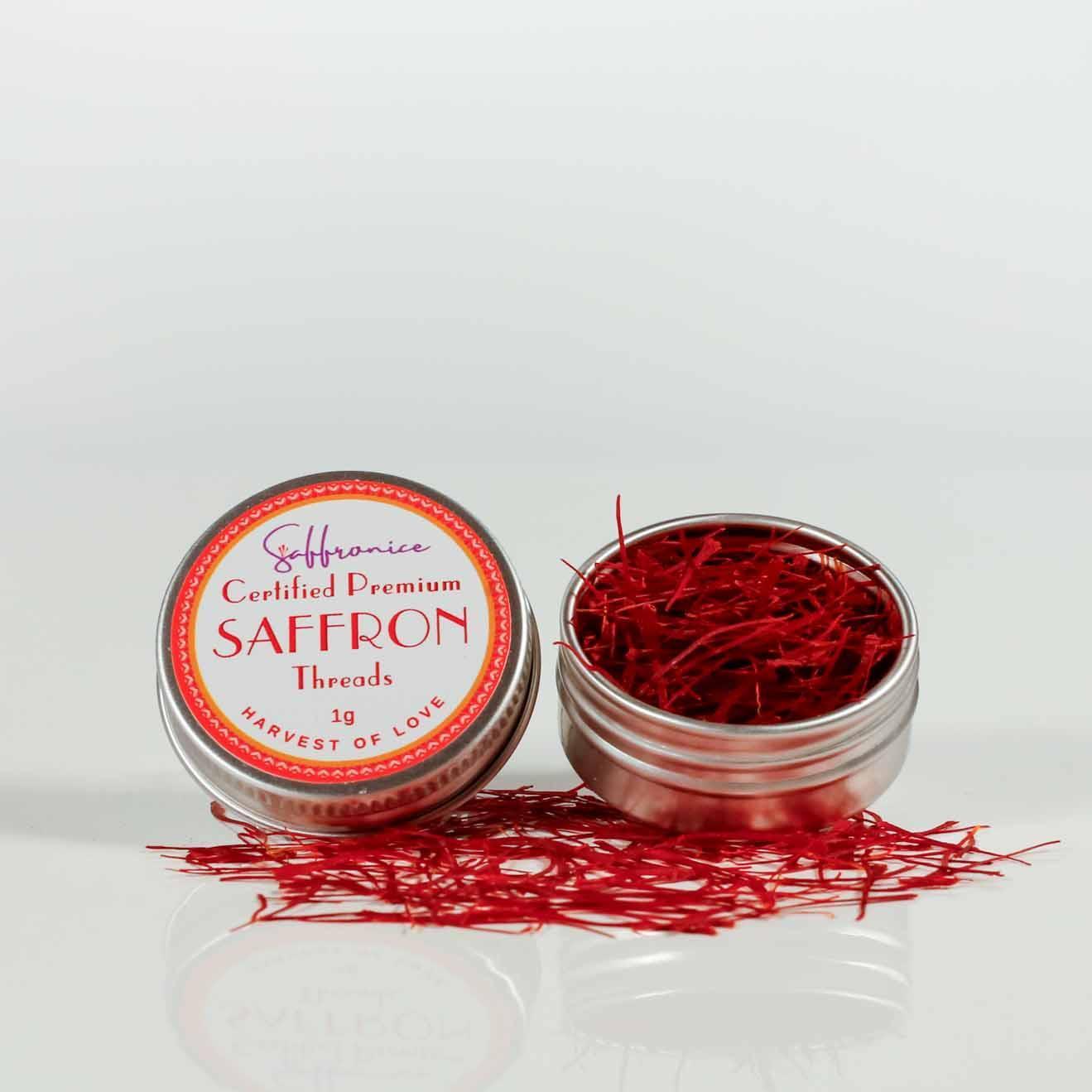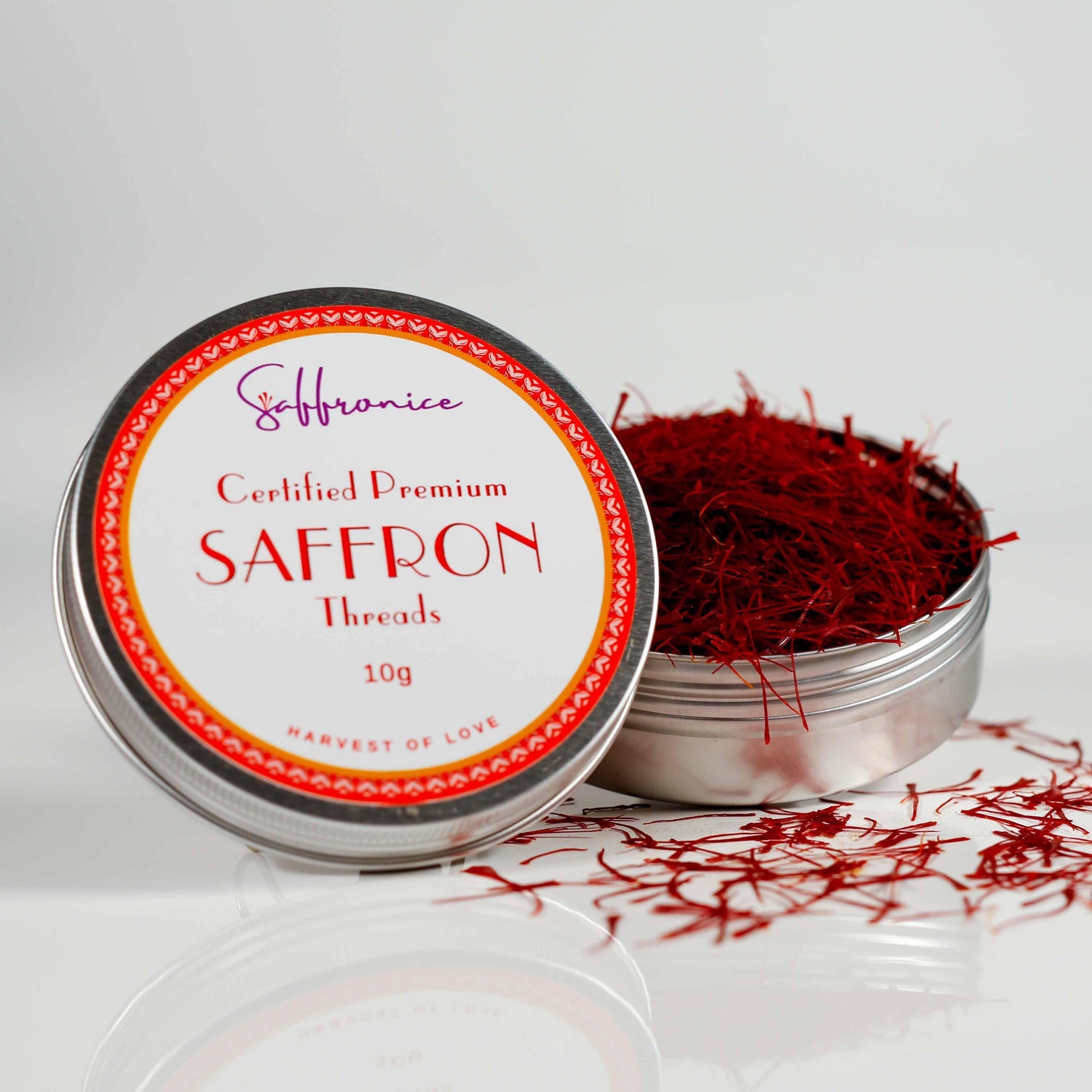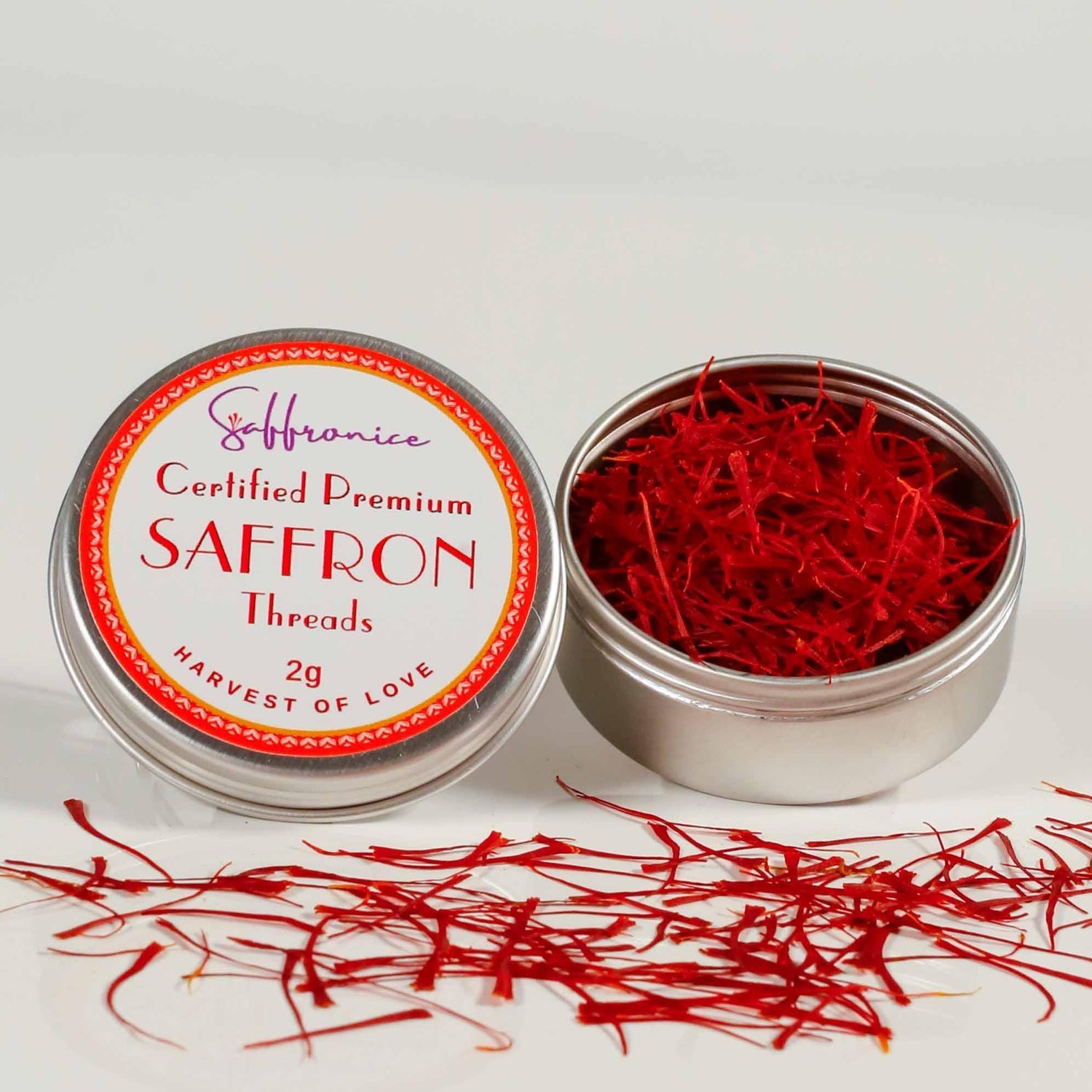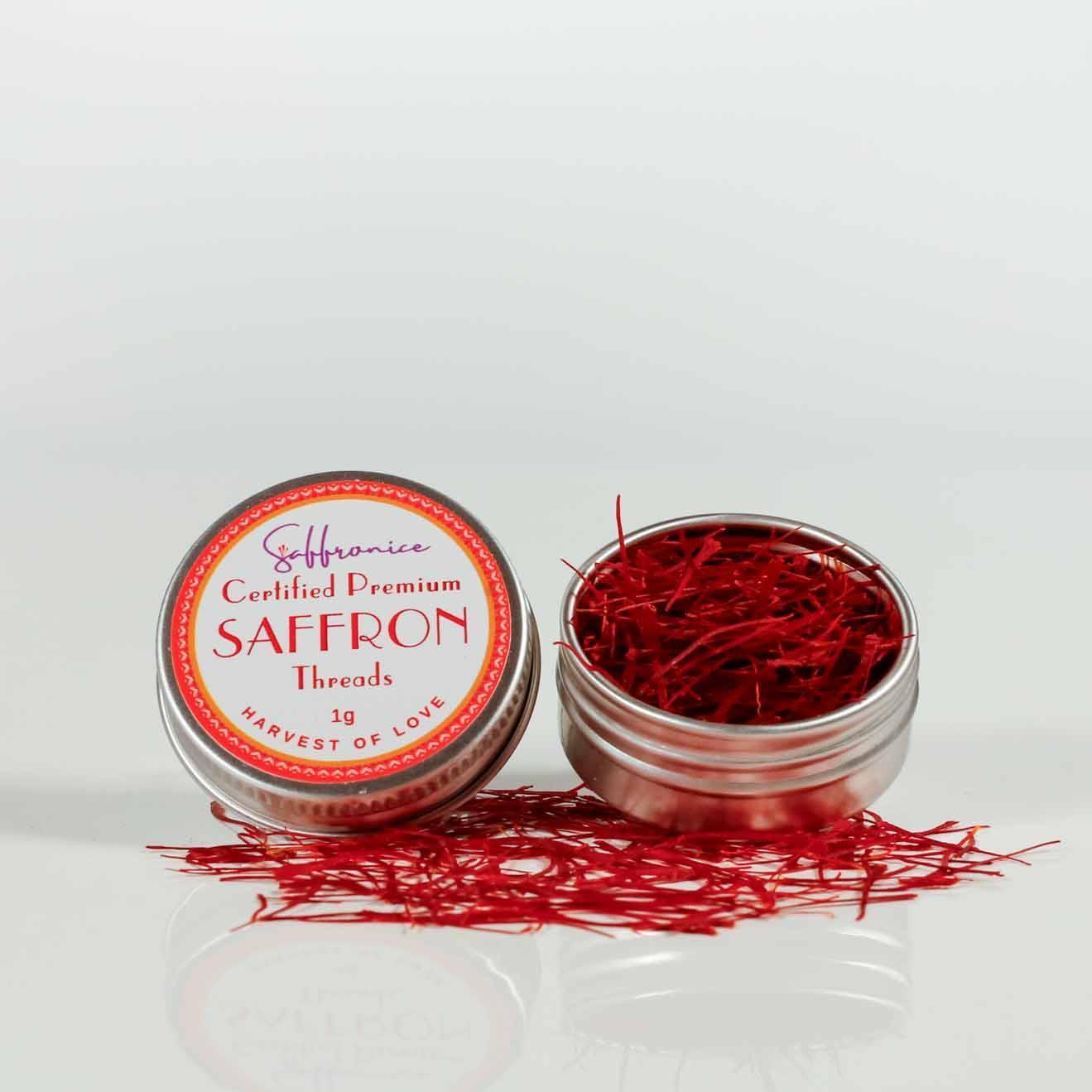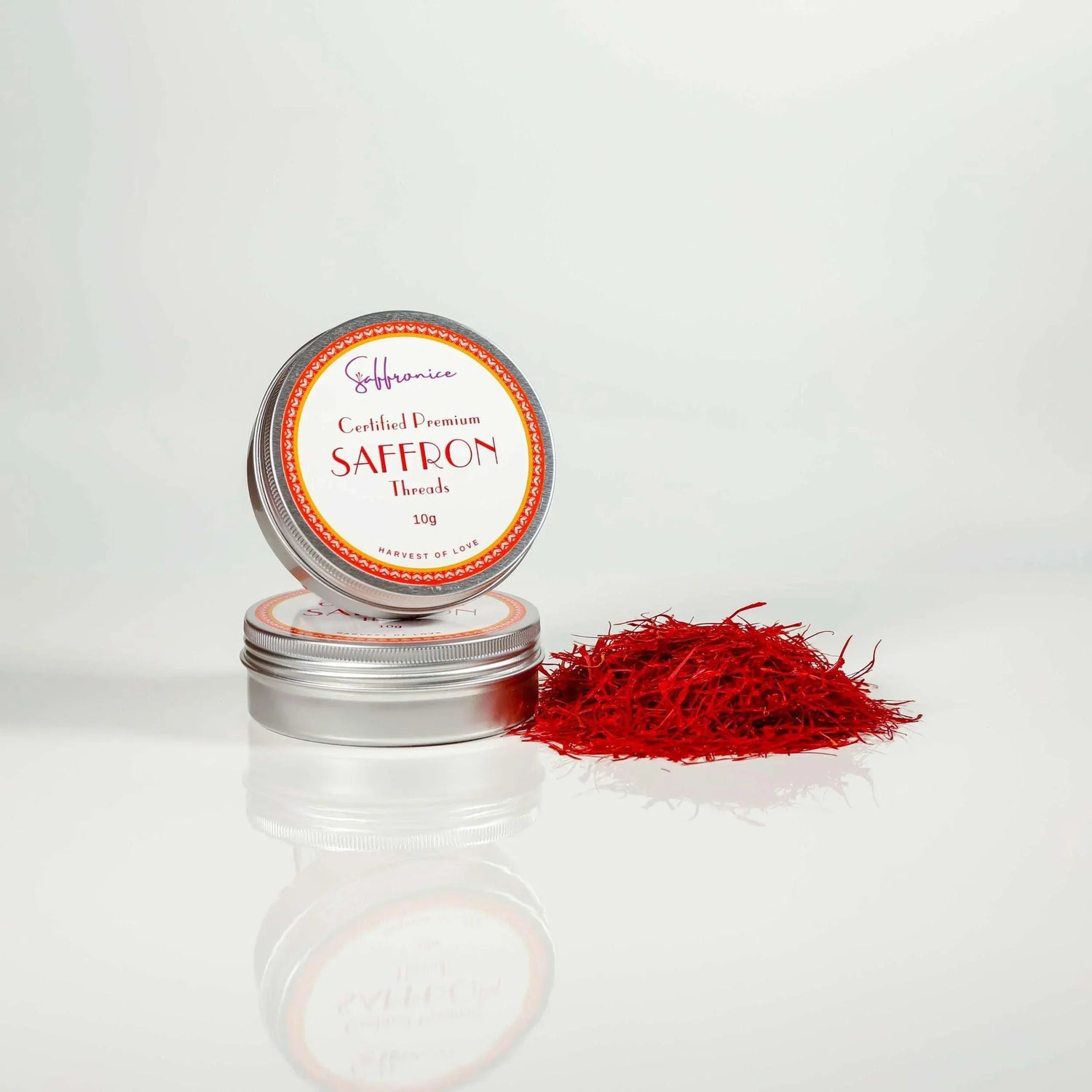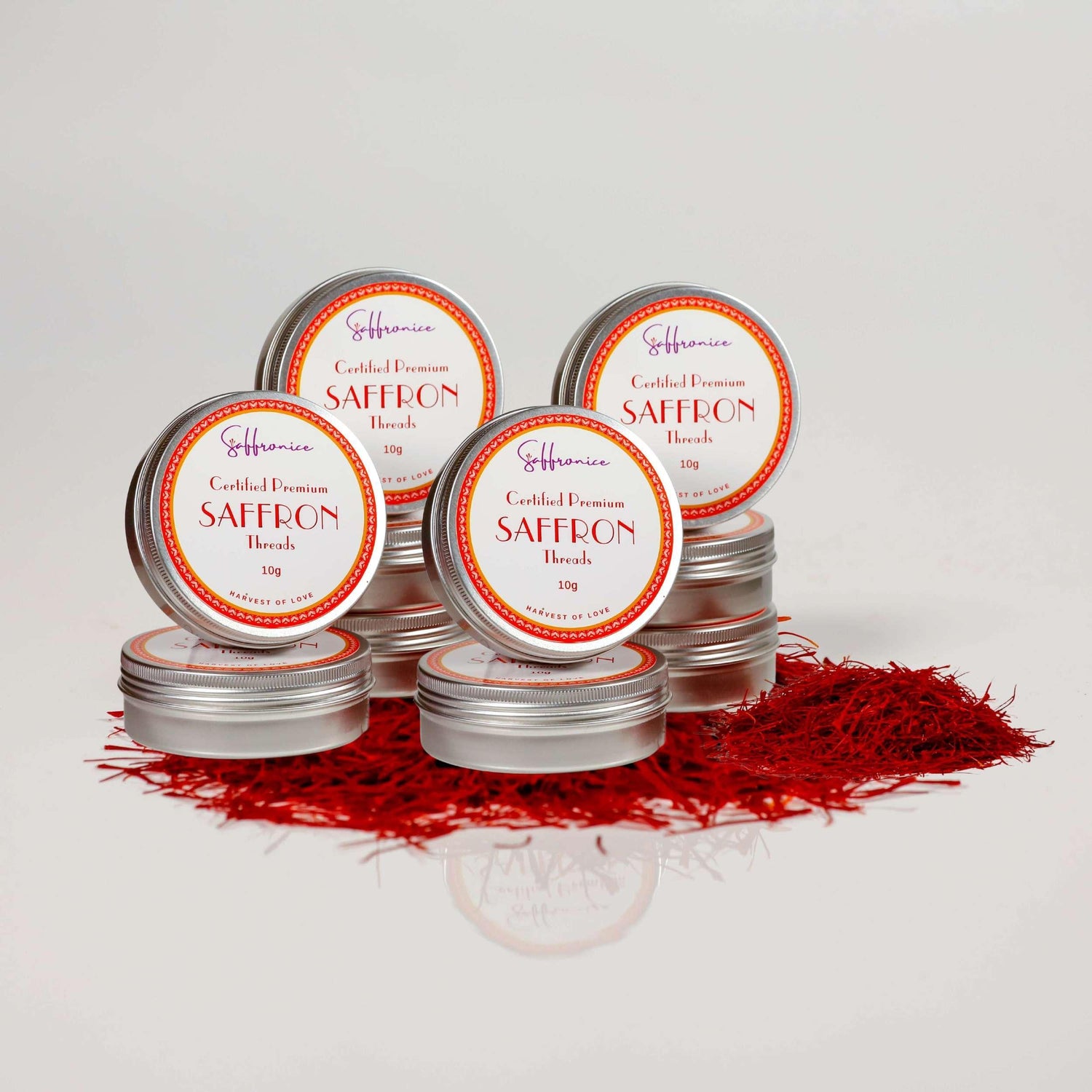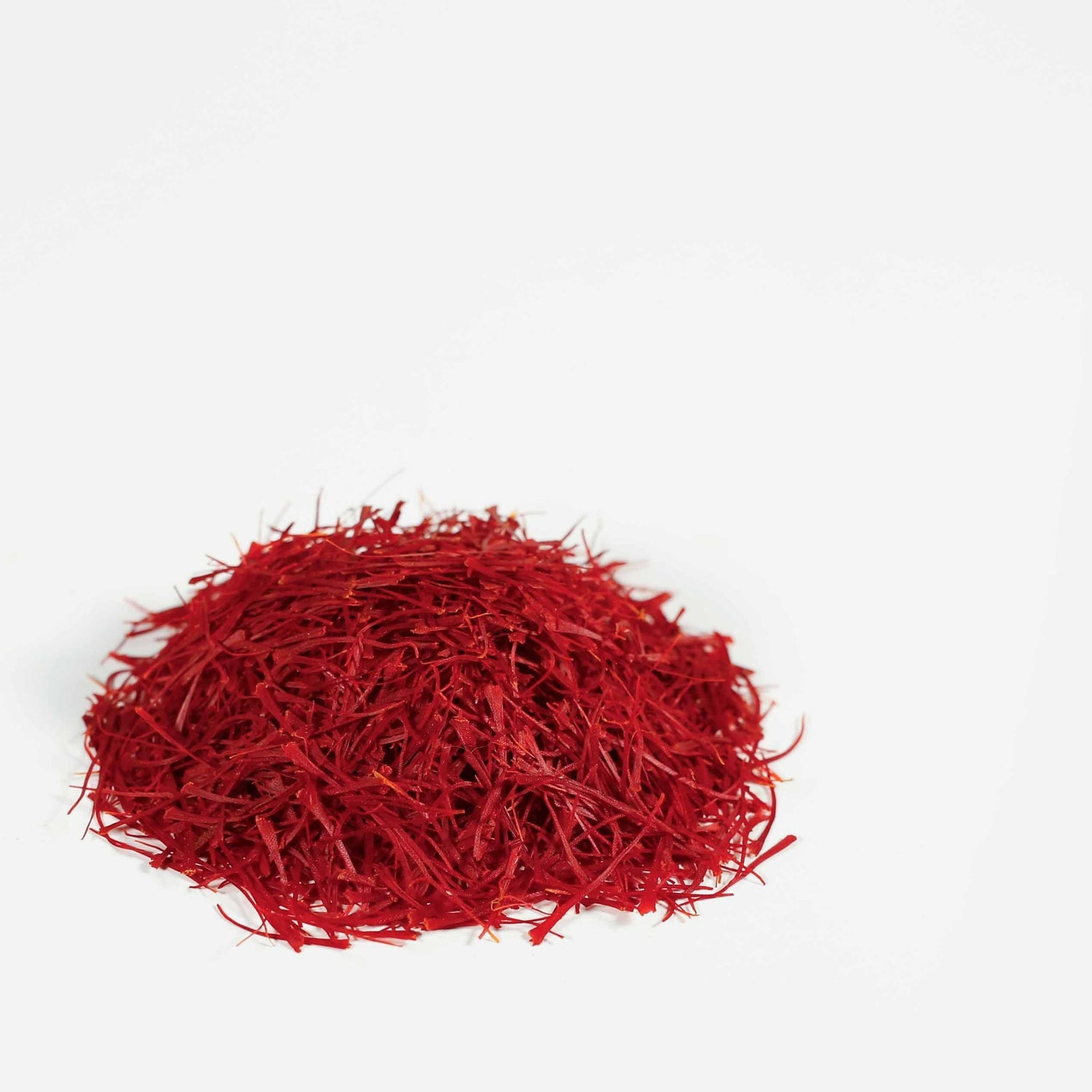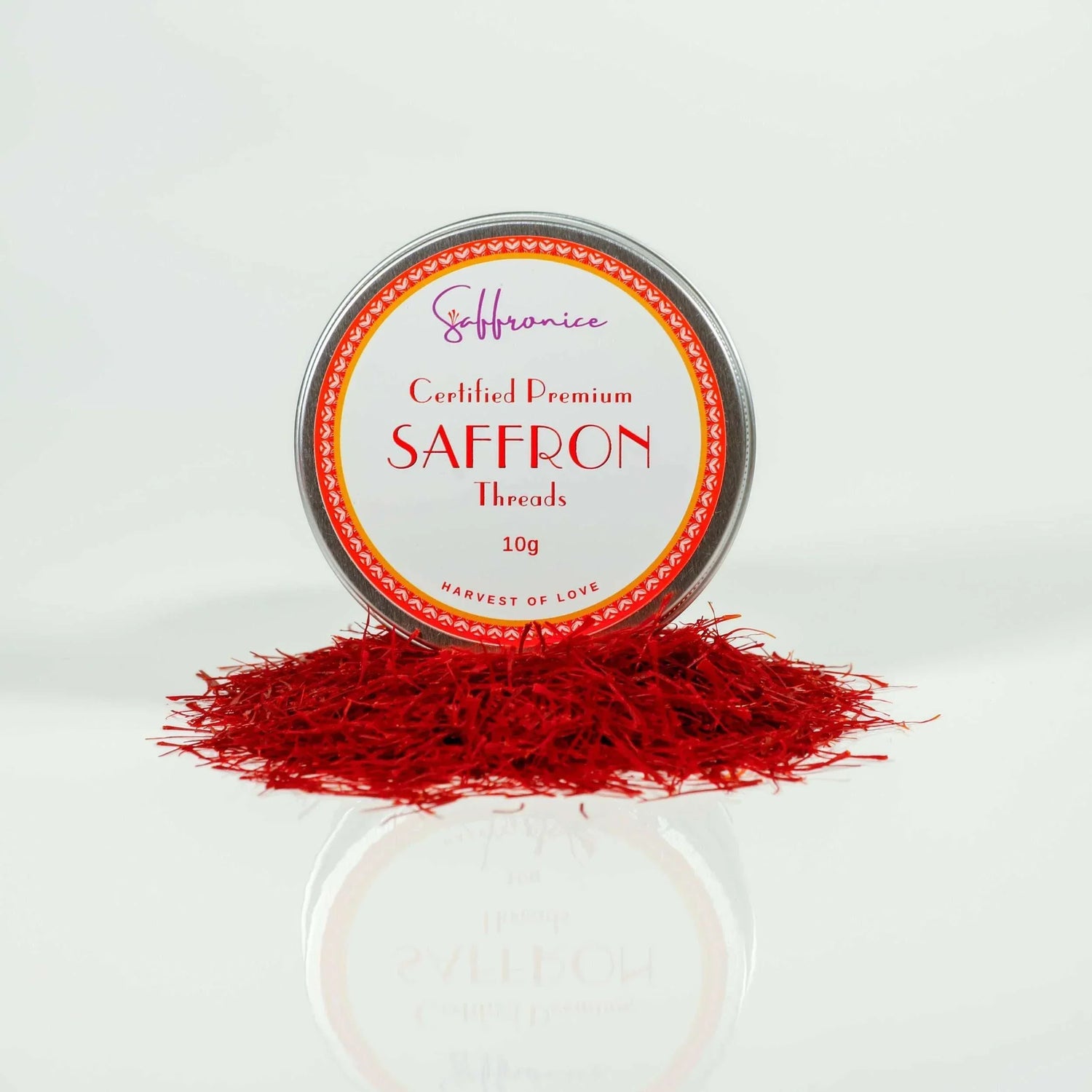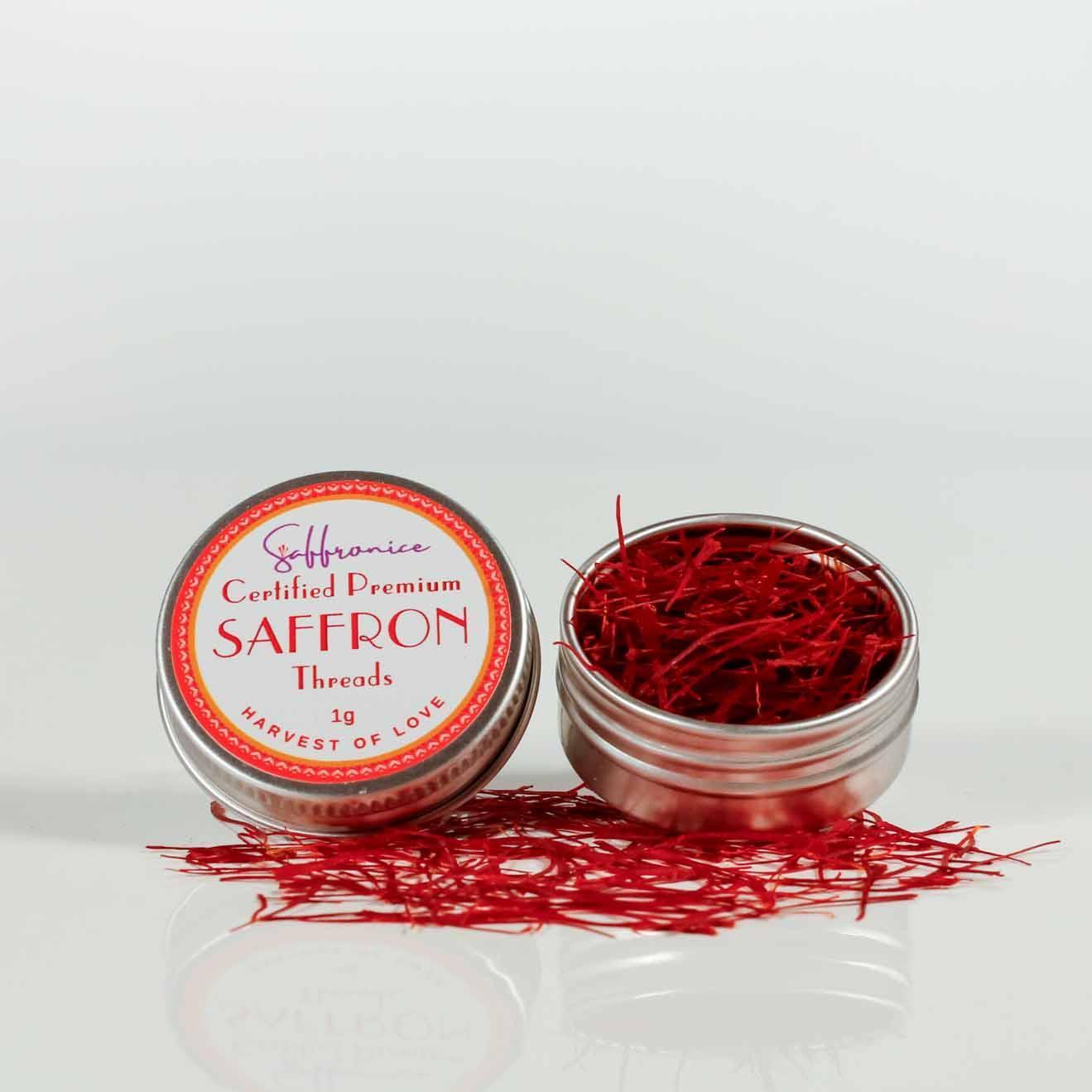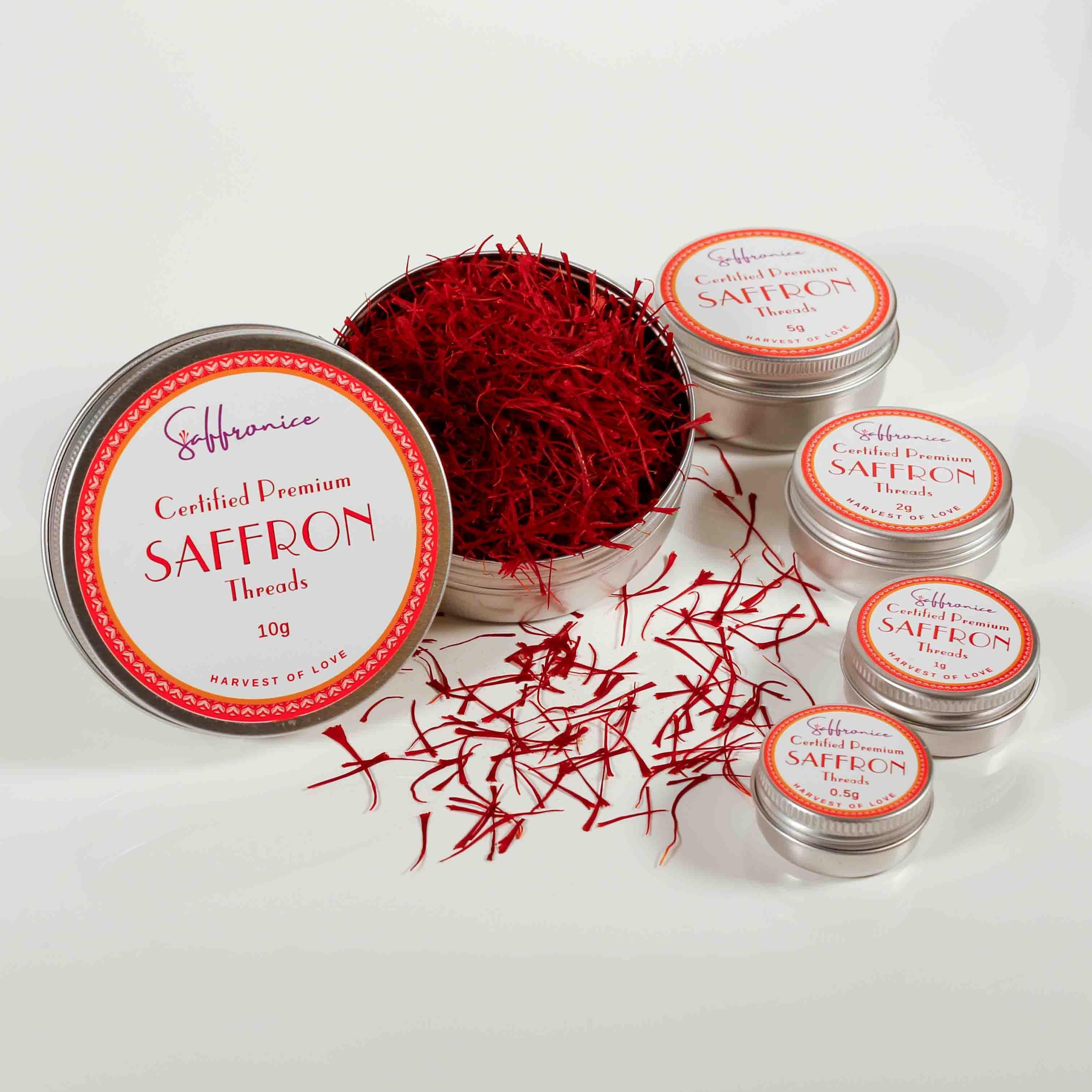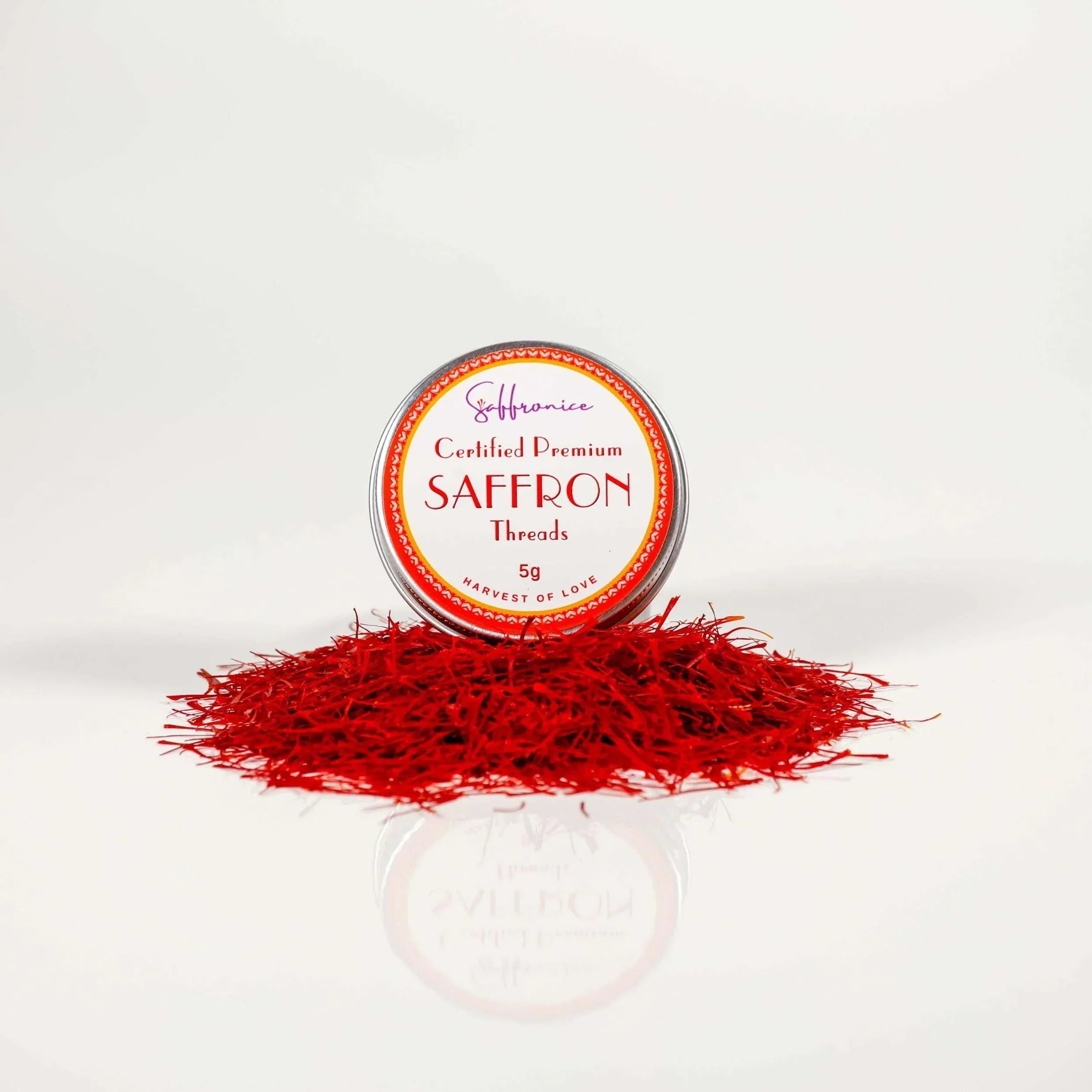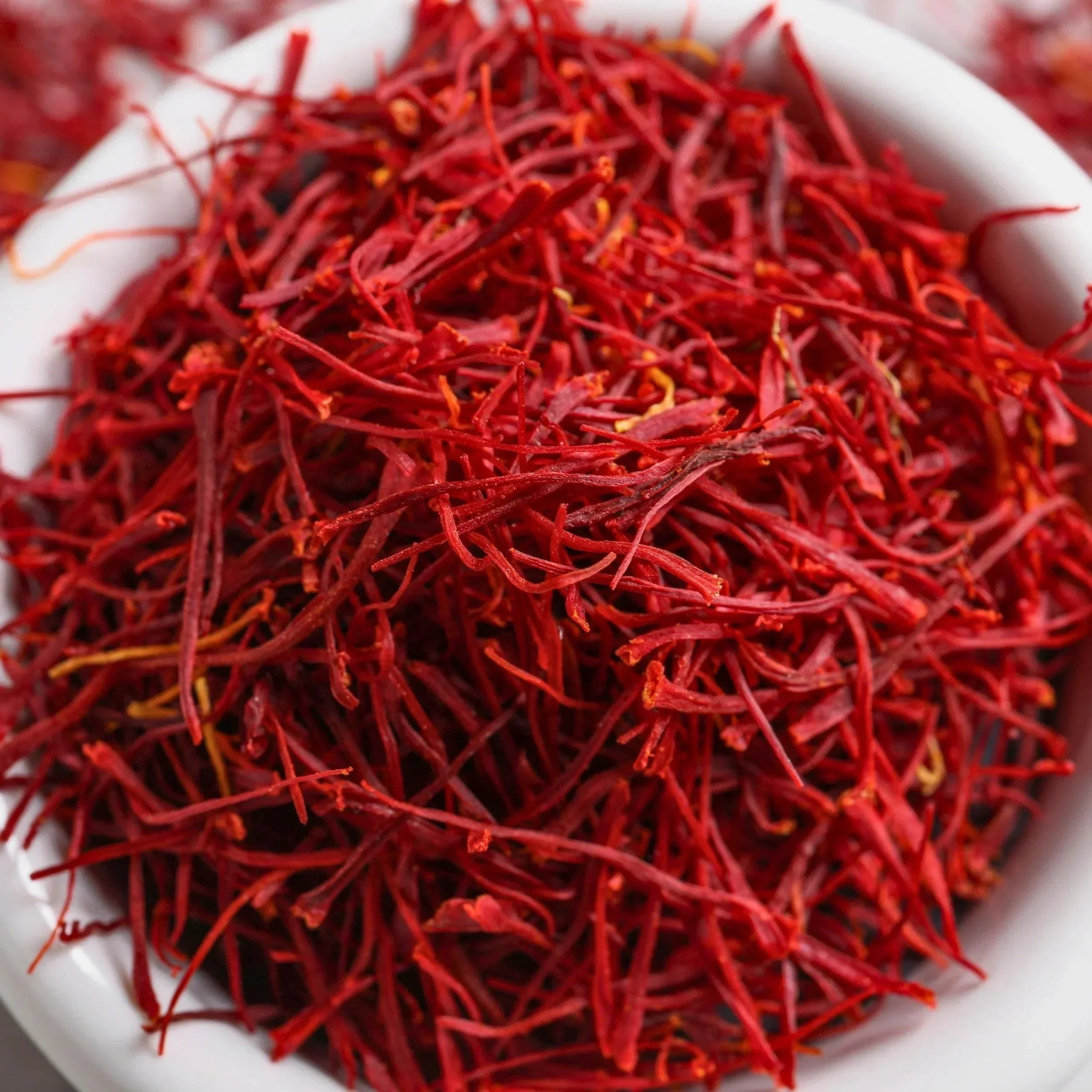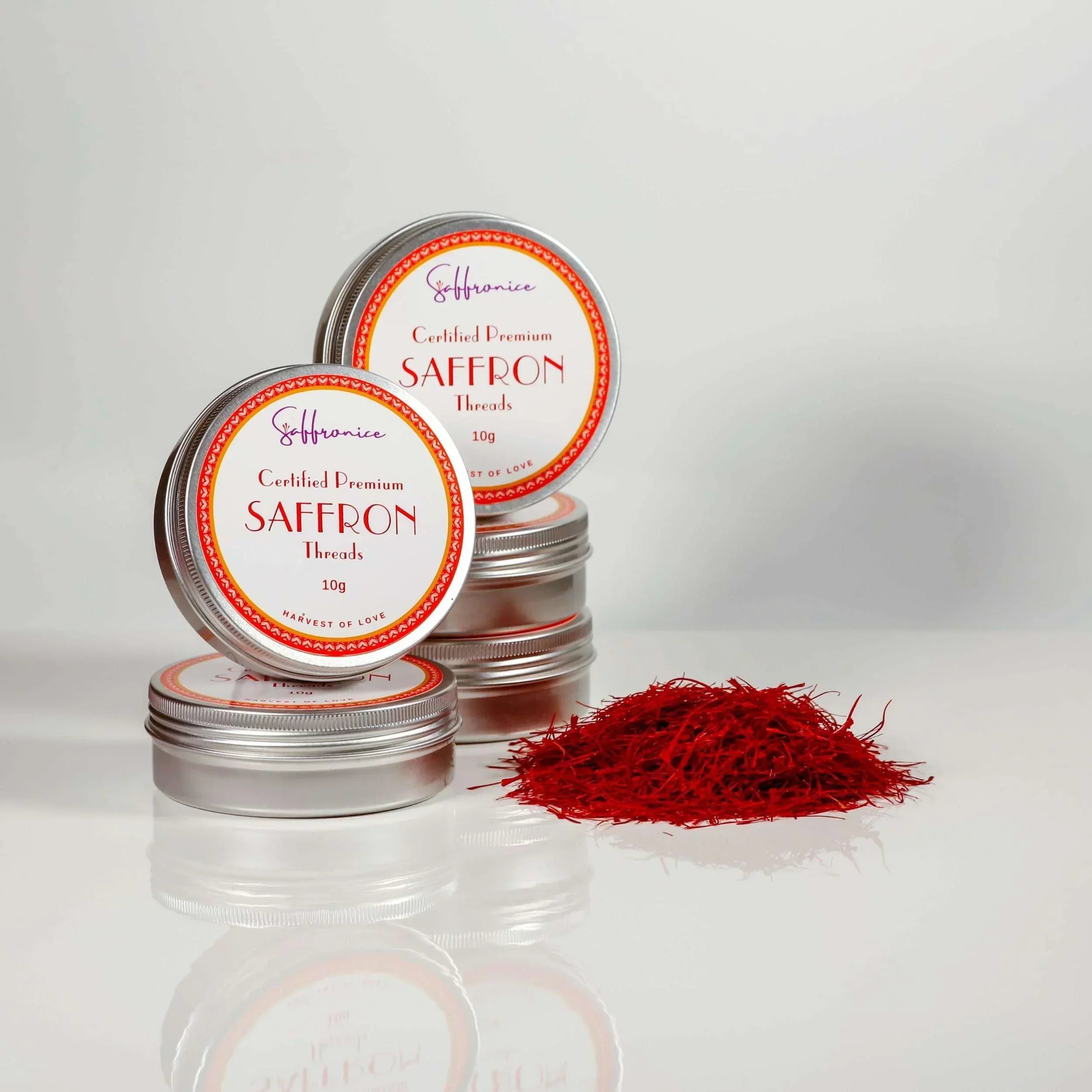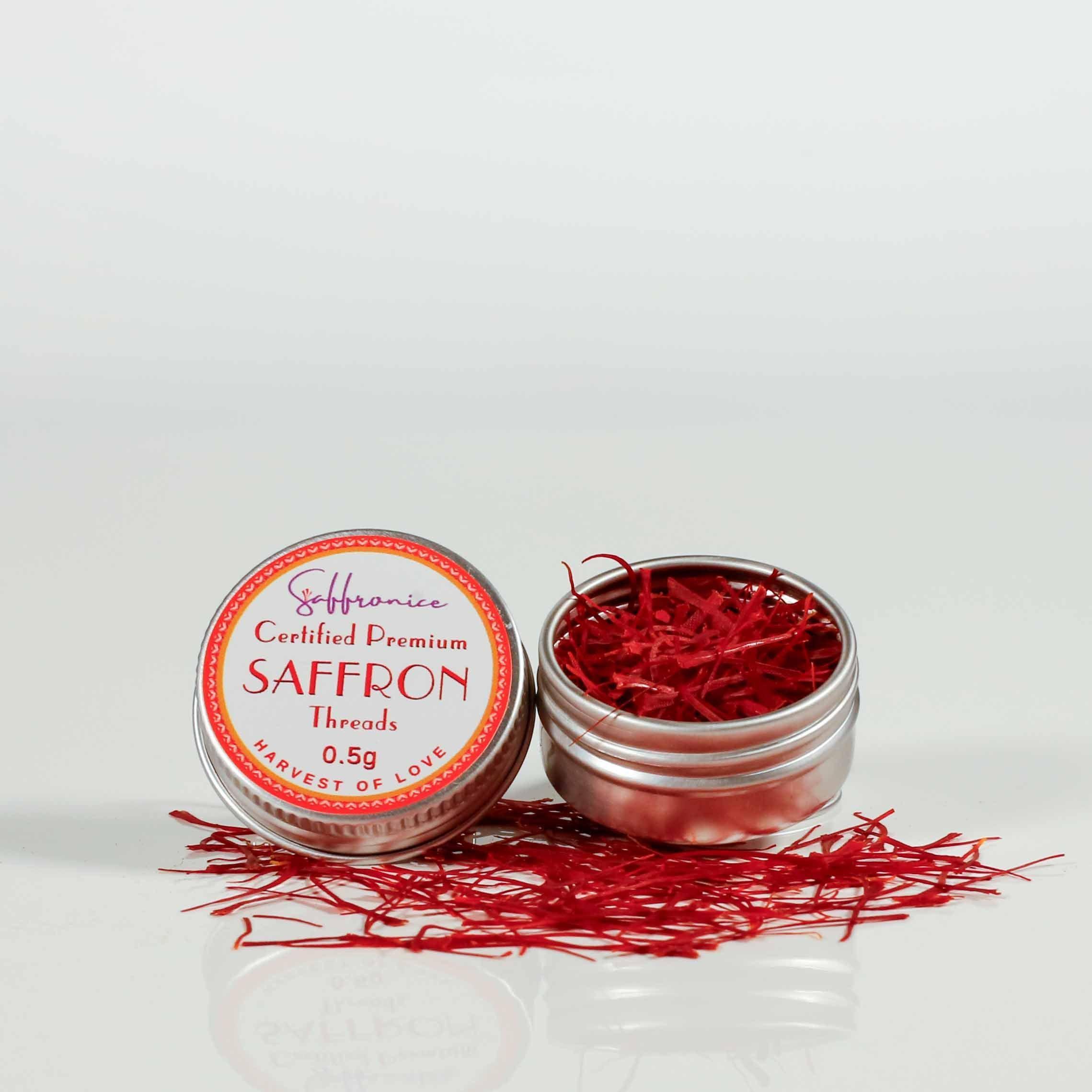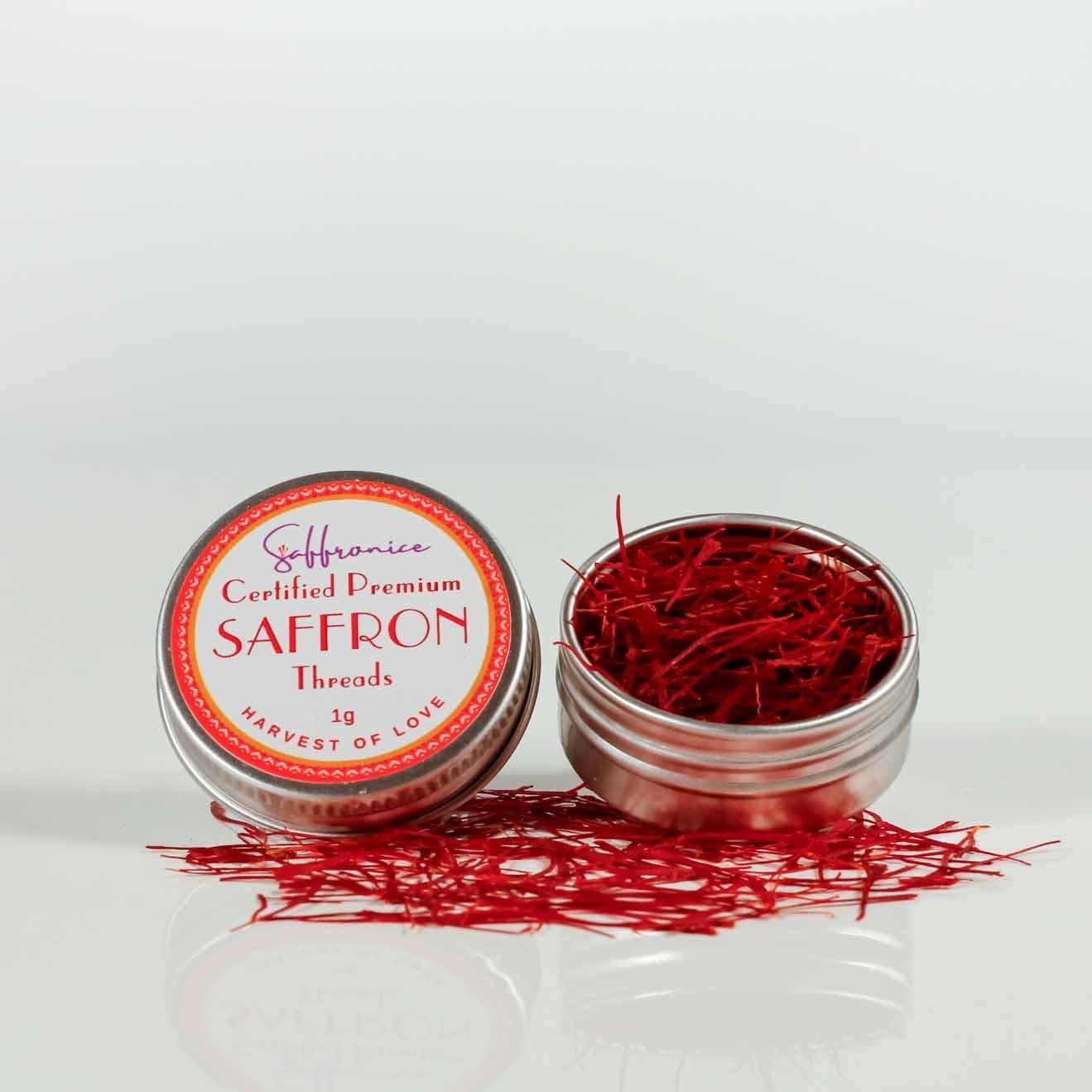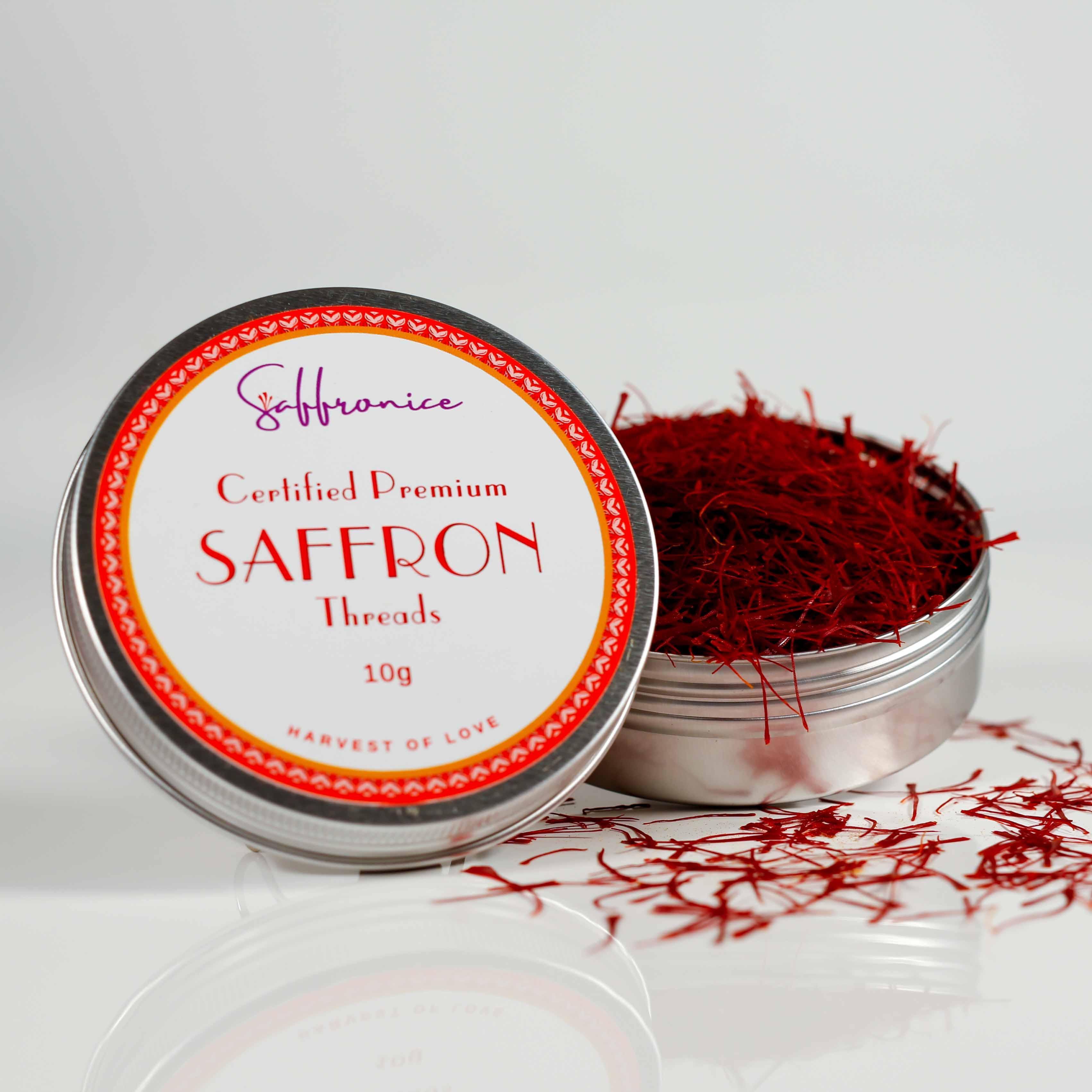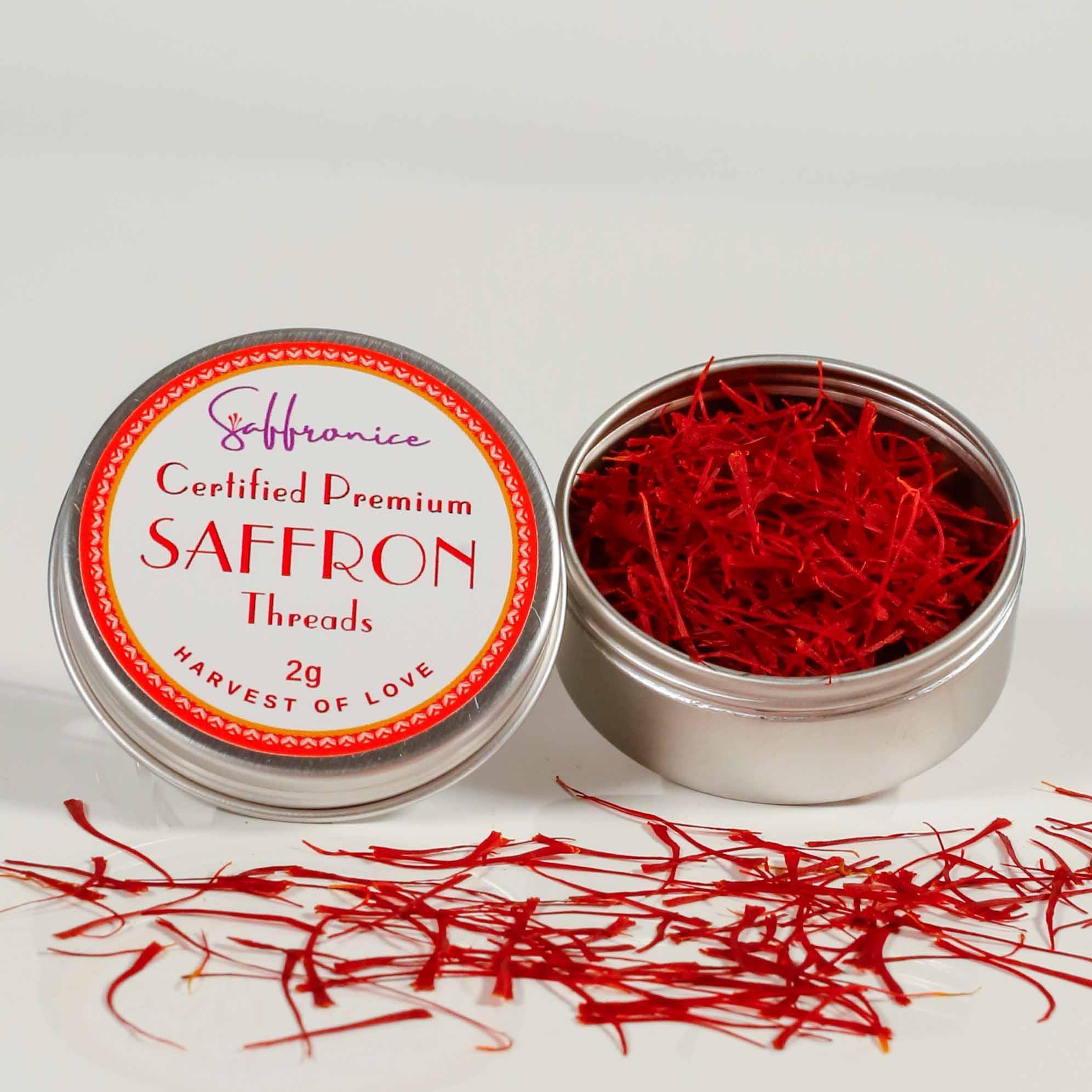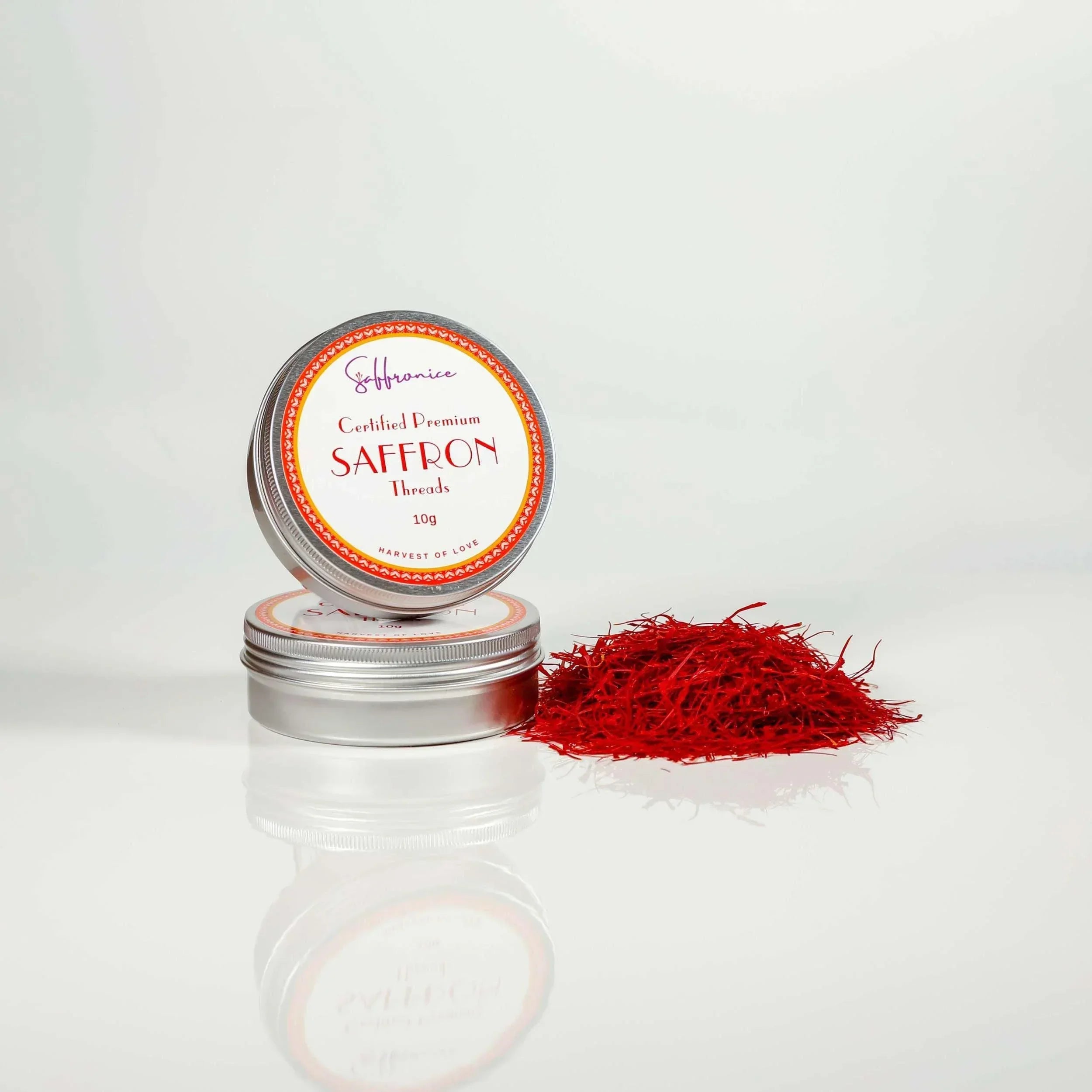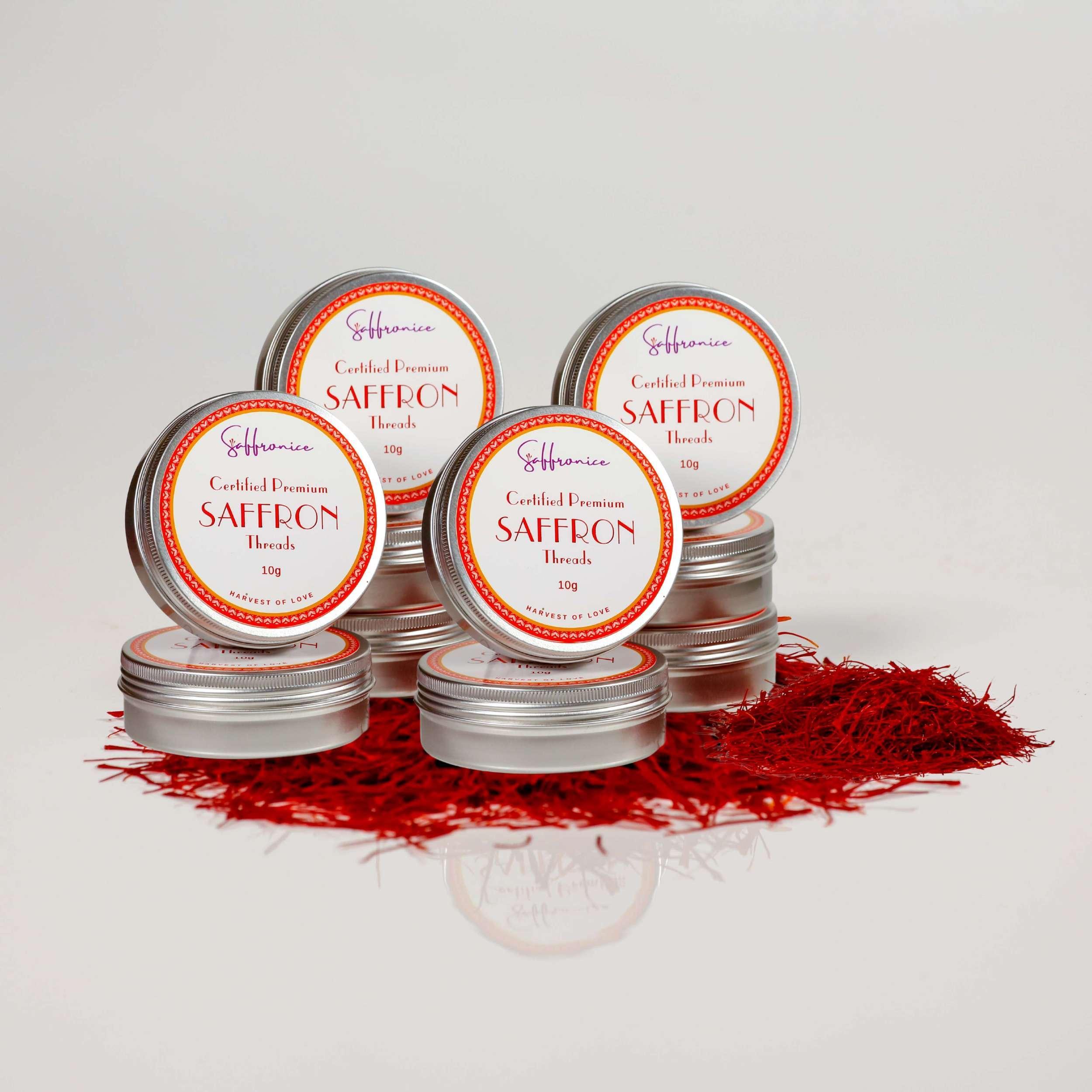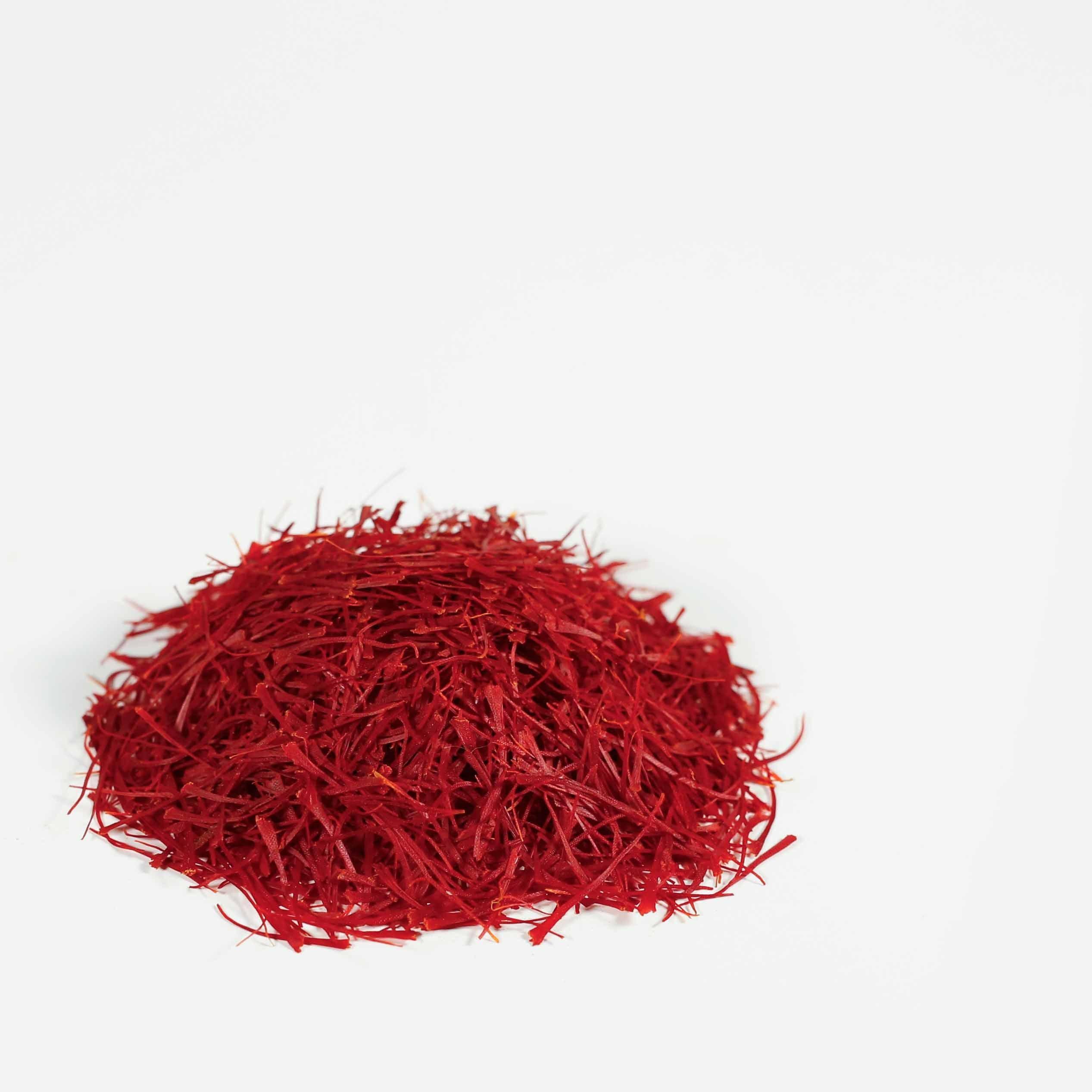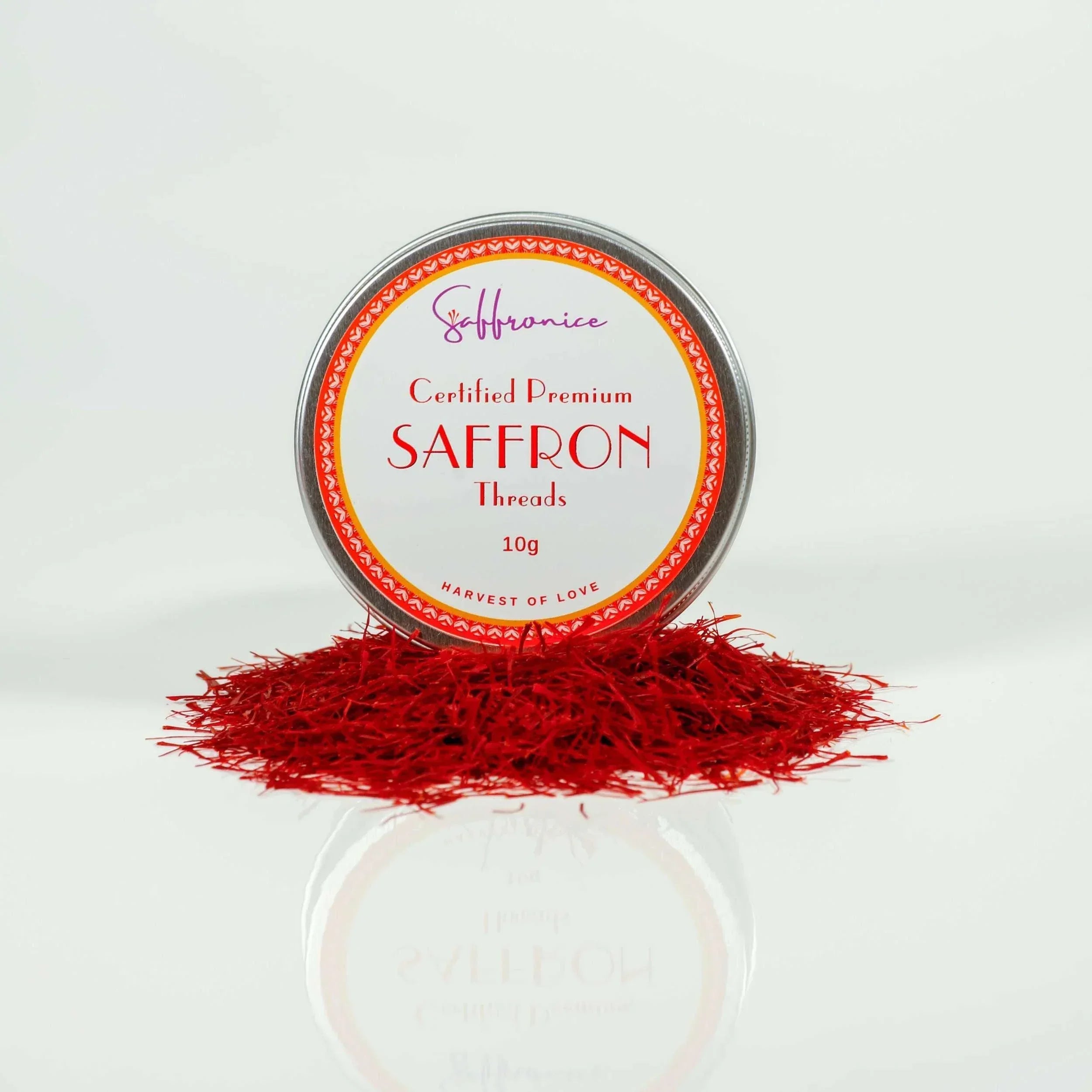In 2025 alone, seven different studies investigated saffron’s effects on everything from mood and sleep to blood sugar and women’s health. These trials were conducted by universities and medical research centers across Iran, China, Belgium, Greece and Australia. Their findings suggest that saffron isn’t just a colourful spice; it may also support your well-being in meaningful ways. Below you’ll find a summary of what those studies discovered, along with links to the original research and the organizations behind them.

Saffron and Your Mood: Natural Support for Depression and Anxiety
Feeling low or anxious is incredibly common, yet many people hesitate to seek treatment because of side effects or stigma. Recent research suggests that saffron might offer a gentler option:
-
Comparable to antidepressants. Randomized controlled trials from Tehran University of Medical Sciences and Mashhad University of Medical Sciences found that taking about 30 mg of saffron per day for six weeks eased depression just as effectively as fluoxetine or imipramine, with fewer side effects. These studies are summarized in a 2025 review published by Cureus (link).
-
Combination power. In 2025, researchers at the Université Catholique de Louvain (UCLouvain) ran a trial comparing saffron, an herbal extract called Scutellaria, their combination, and a placebo. They found that all herbal groups felt less depressed and anxious after six weeks, and those taking both herbs improved the most (Nutrients study).
-
Everyday mood lifts. A pilot study led by UCLouvain and published in the American Journal of Clinical Nutrition tested saffron extract in adults with mild depressive symptoms. While formal depression scores didn’t change, participants taking saffron reported better overall mental health (Saffromfood study).
What does this mean for you? If you’ve been feeling down or worried but aren’t ready for medication, saffron could offer gentle support. Always talk to a doctor before changing your treatment plan.

Sleep Tight: Saffron for Better Rest
Do you struggle to fall asleep or stay asleep? Modern life makes good sleep hard, but saffron might help reset your rhythms:
-
Shorter sleep latency. A 2025 pilot trial conducted by Monash University (Australia) found that 30 mg of saffron reduced the time it took older adults to fall asleep and helped them stay asleep longer. This study also noted shifts in gut bacteria that might influence sleep and mood (Gut‑Sleep‑Brain study).
-
Improved insomnia symptoms. In the Sleep Med X trial led by researchers in France and Australia, 165 adults with moderate insomnia took 20 mg or 30 mg of saffron extract (Safr’Inside) or a placebo for four weeks. Those taking saffron slept better and felt less stressed, with no serious side effects.
Practical tip: Brew a warm saffron-infused milk or tea about an hour before bed. Combine it with simple sleep hygiene — turning off screens and keeping a cool bedroom — for best results.

Blood Sugar, Heart Health and Metabolism
Many middle-aged adults worry about diabetes and heart disease. Saffron may offer modest support:
-
Improved blood sugar and blood pressure. A meta-analysis by Henan University of Chinese Medicine pooled data from 25 randomized trials. The results showed saffron supplements slightly lowered fasting blood glucose, HbA1c, cholesterol and both systolic and diastolic blood pressure (Phytotherapy Research article). The improvements were small but encouraging when paired with diet and exercise.
-
Type 1 diabetes pilot. A 2024 trial in Greece tested a supplement containing probiotics, prebiotics, magnesium and saffron extract in people with type 1 diabetes. After six months, those taking the saffron mix had lower triglycerides and slightly improved HbA1c compared with baseline, though results weren’t dramatically different from the placebo group (Nutrients study).
-
Fatty liver benefits. Researchers from Iran University of Medical Sciences ran a 12‑week trial on patients with non‑alcoholic fatty liver disease. Taking 100 mg of saffron per day reduced liver fat scores and improved cholesterol and fasting blood sugar compared with placebo, although liver enzymes didn’t change (Journal of Herbal Medicine trial).
Think of saffron as a supportive teammate to healthy eating and exercise, not a replacement for medication.

Women’s Wellness: From Libido to PMS Relief
Hormonal shifts can have a huge impact on quality of life. Research shows saffron may ease some of these issues:
-
Enhanced libido and satisfaction. A 2024 study from Iran University of Medical Sciences gave women with sexual dysfunction 15 mg of saffron alongside vitamin E or vitamin E alone. The saffron group had higher scores in desire, arousal, orgasm and satisfaction and lower depression scores (BMC Women’s Health trial). Another study from Tehran University of Medical Sciences found that 50 mg/day of saffron improved desire, lubrication and satisfaction compared with placebo (Avicenna Journal of Phytomedicine trial).
-
Premenstrual syndrome (PMS). In 2025, researchers at Shahid Sadoughi University of Medical Sciences tested a supplement called PMSoff — a blend of spirulina, whey protein, vitamins, herbs and saffron. Women taking PMSoff for two months had greater reductions in PMS and PMDD symptoms than those taking a placebo (Journal of Pharmaceutical Health Care and Sciences trial). Earlier research with saffron alone also showed reductions in PMS mood swings.
Ease With Care
While saffron shows promise, always consult your healthcare provider before taking it during pregnancy, breastfeeding or alongside hormone treatments.

Brain and Nervous System: A Look at Aging Brains
As we age, worries about memory and brain health become more common. Saffron may offer some protection:
-
Alzheimer’s disease. Multiple trials from universities in Iran and Europe, summarized by Cureus in 2025, found that 30 mg/day of saffron for 16–52 weeks was just as effective as donepezil or memantine in slowing cognitive decline in mild‑to‑moderate Alzheimer’s disease and caused fewer digestive side effects (Cureus review).
-
Parkinson’s disease trial underway. A triple‑blind study coordinated by researchers at Iran University of Medical Sciences and published in BMJ Open aims to test 100 mg/day of saffron in people with Parkinson’s disease over 12 weeks to see if it can reduce inflammation and improve motor function (BMJ Open protocol).
These early results suggest saffron may complement conventional care for neurodegenerative diseases, but more research is needed.

Is Saffron Safe? Dosage & Precautions
Saffron is generally well tolerated from 30mg up to 400 mg per day. People have consumed it as a spice for centuries without trouble, and clinical trials report very few side effects. At very high doses (over 5 g per day), saffron could cause headaches, dizziness or digestive upset, and it may thin the blood. Cancer patients are advised not to exceed 400m g per day. Because supplements vary in quality, choose reputable brands.
Who Should Be Cautious?
-
Pregnant women and those trying to conceive.
-
People on blood-thinners or blood-pressure medication.
-
Anyone with a saffron or flower allergy.
Putting It All Together
Saffron health benefits span mood, sleep, metabolism, women’s health and brain function. It’s not a magic bullet, but for many middle-aged adults it can be a gentle, natural addition to a healthy lifestyle. You can explore saffron’s potential by adding a pinch to dishes like rice or tea or by trying supplements that deliver about 200 mg per day. Always discuss new supplements with your healthcare provider.


